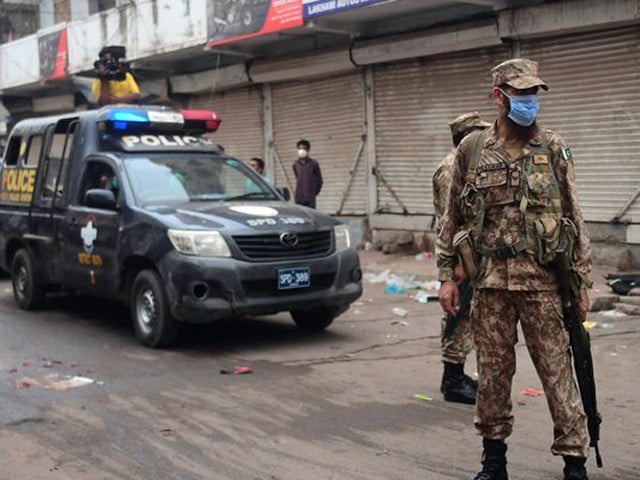——— Statement comes day after Afghan Minister advised both to resolve issues through dialogue
DM Monitoring
NEW DELHI: Recent revelations have brought into sharp focus the alleged involvement of the Indian government in a series of targeted assassinations carried out in Pakistan, sparking concerns about extrajudicial actions and escalating geopolitical tensions in the region.
As reported by The Guardian, based on disclosures from Indian and Pakistani intelligence operatives, India’s foreign intelligence agency, the Research & Analysis Wing (RAW), is purportedly behind a string of killings on foreign soil, notably in Pakistan. These actions are believed to be part of a broader strate-gy aimed at eliminating individuals considered hostile to Indian interests.
Accounts provided by intelligence officials, corroborated by Pakistani investigators, paint a troubling picture of covert operations. RAW is alleged to have employed clandestine methods to neutralise per-ceived threats, with these operations reportedly intensifying after 2019. Nearly 20 killings since 2020 have been linked to unknown gunmen operating in Pakistan.
Among the targeted individuals were purported militants associated with organisations such as Jaish-e-Mohammed and Lashkar-e-Taiba, both of which have long been accused by India of orchestrating terrorist attacks on Indian soil. However, the allegations also suggest a broader scope, indicating the targeting of dissidents and separatists, particularly Sikh activists associated with the Khalistan move-ment, both in Pakistan and in Western countries like Canada and the United States.
The modus operandi described in the reports implicates RAW operatives working through sleeper cells primarily based in the United Arab Emirates (UAE). These cells are alleged to have facilitated the re-cruitment of local criminals or impoverished individuals to carry out the assassinations, often under the guise of jihadist activities.
The alleged motivations behind these actions are multifaceted, with one Indian intelligence officer cit-ing the Pulwama attack in 2019 as a triggering event. The attack, claimed by Jaish-e-Mohammed, re-sulted in the deaths of 40 paramilitary personnel and reportedly prompted a shift in RAW’s strategy towards preemptive strikes on perceived threats outside Indian territory.
Moreover, the reports suggest a broader geopolitical context, with India drawing inspiration from in-telligence agencies of other nations, such as Israel’s Mossad and Russia’s KGB, known for their in-volvement in extrajudicial actions on foreign soil. The assassination of the Saudi journalist Jamal Khashoggi was reportedly cited as a precedent during discussions within India’s intelligence circles.
India’s Ministry of External Affairs has vehemently denied all allegations, labelling them as “false and malicious anti-India propaganda.” However, the documents shared by Pakistani investigators purport-edly include detailed evidence, ranging from witness testimonies to financial transactions, which alleg-edly link RAW to the assassinations.
The emergence of these allegations poses significant diplomatic challenges, particularly in the context of India’s strategic partnerships with Western nations. The accusations of extrajudicial killings could strain relations with countries like Canada and the United States, which have already expressed con-cerns over the targeting of Sikh activists.
Walter Ladwig, a political scientist at King’s College London, suggested that the purported shift in strat-egy aligns with Prime Minister Modi’s more assertive foreign policy stance. Ladwig noted parallels with the actions of Western states accused of extrajudicial killings in the name of national security. He re-marked that there are individuals in Delhi who perceive such actions as India’s prerogative, echoing sentiments of national sovereignty.
Daniel Markey, a senior adviser on South Asia at the United States Institute of Peace, concurred with Ladwig’s assessment. Markey emphasised that these alleged actions align with India’s aspiration for global prominence. He indicated that some within India interpret such assertive measures as indicative of the country’s emergence as a major power.
The accusations of extrajudicial killings, if proven true, could pose significant challenges for Western countries that have cultivated close ties with Modi’s Hindu nationalist Bharatiya Janata Party (BJP) gov-ernment. These allegations may compel Western nations to reassess their strategic and economic partnerships, particularly in the context of intelligence-sharing agreements.
Contrary to these allegations, a former senior RAW official, who served before Modi’s tenure, denied that extrajudicial killings were within the agency’s mandate. The official stressed that any actions un-dertaken by RAW required approval from the national security adviser, who would then report to the prime minister. The official’s statements suggest a structured hierarchy within RAW, where significant decisions would necessitate high-level clearance.
The former RAW official further posited that the killings may have been carried out by Pakistani actors themselves, a viewpoint echoed by some in India. However, Pakistani agencies refute these claims, pointing to a list of dissidents residing in Pakistan who have reportedly received direct threats to their lives. According to Pakistani sources, individuals who disregarded these warnings and continued with their routines have subsequently met grim fates.




